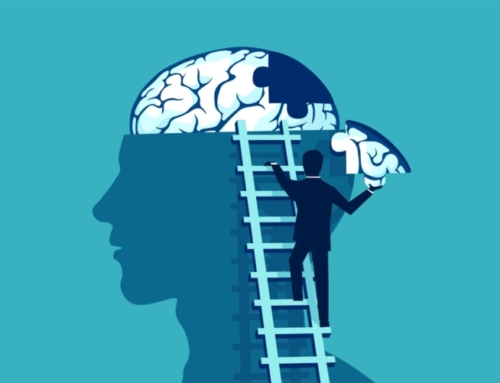How’s your sleep? If you’re like the average adult, it’s probably less than optimal and becoming increasingly fragmented and unrestful each passing year. Some of this is due to unavoidable physiologic changes; our slow-wave sleep and slow-wave activity decline from puberty onward. We often don’t notice this until middle or older age, but that’s because it is then that it becomes consequential and no longer fully compensated. Another contributor to poor sleep is associated with the activities and rhythms of modern life; there is too much to do and to think/worry about and too many fun or addictive activities to spend one’s limited time on. And, of course, as a physician or other health care professional, you know our training and work-life requires being on call and working long and often unpredictable hours. A third contributor to sleep disruption is that the wear and tear and disease burden we accumulate over the years both contribute to sleep disruption and are exacerbated by disrupted sleep.
All these contributors can culminate in a sleep disorder. But, even if you don’t have a frank sleep disorder, you may already notice it is harder to fall asleep, stay asleep, and wake up refreshed from your night’s sleep.
Here are some stats: in sleep screenings conducted during sessions of the Sleep Health and Wellness (SHAW) program offered to physicians, 1047 attendees completed a sleep disorder screening. 29% screened positive for at least one sleep disorder. Of these, 92% were previously undiagnosed and untreated (Weaver et al., 2020). The most common sleep disorders were:
- Insomnia: 14%
- Obstructive sleep apnea: 12%
- Shiftwork disorder: 11%
- Restless legs syndrome: 2%
Of course, these are the results of a self-report screening questionnaire, not a diagnostic workup. Nonetheless, these results point to the commonness of sleep problems and their nature.
My objective in today’s post is to encourage you to take action if you are aware of problems with your sleep. You will note that they often are chronic problems and perhaps increasing in severity. If so, they are unlikely to resolve without intervention. Sleep disruptions decrease the quality of one’s life and predispose one to many chronic medical and psychiatric conditions (Garbarino, 2020).
Everything I am writing here is not news to you. But I know that sleep problems among physicians and other clinicians are common and yet all too frequently not addressed. I think medical training leads to a skewed focus on taking care of others without a complementary focus on taking care of one’s self.
If you suspect a frank sleep disorder, please get evaluated. Below I list sleep hygiene measures and cognitive behavioral therapy for insomnia (CBT-I) interventions. I include my own experiences to help trigger your investigations.
First, a note about sleep hygiene: as found by the task force commissioned by the American Academy of Sleep Medicine (based on the systematic review, meta-analysis, and GRADE assessment they conducted), sleep hygiene alone is not a recommended treatment (Edinger et al., 2021). There have been only three randomized controlled trials that assessed its effectiveness. The quality of the evidence was low, and the task force judged the ‘potential benefits to be minimal compared to controls.’ What did have robust evidence of benefit, however, was CBT-I. Since CBT-I incorporates sleep hygiene measures – while adding ‘stimulus control’ and ‘sleep restriction’ interventions – focusing on sleep hygiene remains part of the process.
Sleep Hygiene Measures
- Engage in relaxing pre-bedtime rituals (reading, music, bath)
- Optimize your sleep environment (quiet, dark, at the right temperature)
- Maintain regular daytime schedules (making work-day and free-day schedules the same, if possible)
- Limit napping (short and consistent, if at all)
- Avoid large meals in the evening (consider a midday meal as your main meal of the day)
- Avoid any calorie intake late in the evening
- Maintain adequate hydration during the day, front-loading intake before the evening
- Avoid caffeine, nicotine, and ethanol in the evenings. Alcohol is a CNS sedative but disrupts sleep architecture. It can aid in falling asleep but result in middle-of-the-night awakenings)
- Increase regular activity and exercise each day
- Avoid exercise immediately before bedtime
- Consider removing electronics/TV from the bedroom
We’ve all seen these sleep hygiene measures a ‘million’ times before. But have you thought through each one and how it applies to you?
I’ll briefly share with you what I have discovered for myself. The change that has had the most positive effect on my sleep is to sleep in complete darkness. Not just ‘pretty dark’ but completely dark, like I can’t see my hand in front of my face. My wife and I installed black-out shades in our bedroom. Since I do wake up in the middle of the night – I’ve had biphasic sleep my entire life and this continues even with my sleep hygiene measures – in the second half of the night, I put on my eye shades since even the black-out shades on my windows let in a tiny bit of light. The difference for me between nearly to completely black is significant. In complete darkness, I feel like I can completely relax.
Next, I cut back on late-night eating and snacking and, if I slip and eat late at night, I pay for it. Another thing that has made a difference is being well-hydrated. Since I wake up in the middle of the night as part of my (inherited) way of sleeping, needing to urinate then is not disruptive. When I’m not well hydrated, I feel a weird tension in my body that interferes with sleep.
CBT for Insomnia (CBT-I) Interventions
- Sleep hygiene: education and planning to reduce sleep-interfering behaviors
- Stimulus control: avoid sleep-incompatible behaviors in bed (studying, talking on the phone, doing your taxes, etc), get out of bed during awakenings, and maintain standard wake-up time no matter what (as far as work allows)
- Sleep restriction therapy: limit time in bed to that needed to meet previously established sleep requirements, establish standard bedtime and wake times
There is one more measure I take that is not normally found either as part of sleep hygiene or CBT-I. Once I turn out the lights and position myself in bed, I focus on my body and relax the tension. I continue to be amazed how frequently I am lying there in the dark, all scrunched up, with my shoulders tight and my facial muscles still tensed! In such a state, how could I hope to fall asleep? So, now I do a body scan and relax the tension wherever I recognize it. If ‘relaxing on demand’ is hard for you, you can do progressive muscle relaxation in which you tense and then relax different muscle groups as you move up or down the body.
That’s all for today. Please let me know what you think, what your sleep challenges are, and what you do to improve your sleep.
Dr. Jack
References
Edinger JD, Arnedt JT, Bertisch SM, Carney CE, Harrington JJ, Lichstein KL, Sateia MJ, Troxel WM, Zhou ES, Kazmi U, Heald JL, Martin JL. Behavioral and psychological treatments for chronic insomnia disorder in adults: an American Academy of Sleep Medicine systematic review, meta-analysis, and GRADE assessment. J Clin Sleep Med. 2021 Feb 1;17(2):263-298. doi: 10.5664/jcsm.8988. PMID: 33164741; PMCID: PMC7853211.
Garbarino, Sergio. “Sleep Disorders across the Lifespan: A Different Perspective.” International Journal of Environmental Research and Public Health 17.23 (2020): 9025.
Weaver, Matthew D., et al., “Association of sleep disorders with physician burnout.” JAMA Network Open 3.10 (2020): e2023256-e2023256.
Language Brief
“In its early stages, insomnia is almost an oasis in which those who have to think or suffer darkly take refuge.” ― Colette
“The last refuge of the insomniac is a sense of superiority to the sleeping world.” ― Leonard Cohen
“The night is the hardest time to be alive and 4am knows all my secrets.” ― Poppy Z. Brite
“O sleep, O gentle sleep, Nature’s soft nurse, how have I frightened thee. That thou no more will weigh my eyelids down, And steep my senses in forgetfulness?” ― William Shakespeare







Leave A Comment